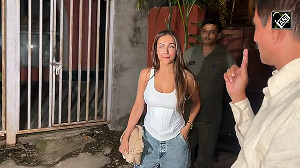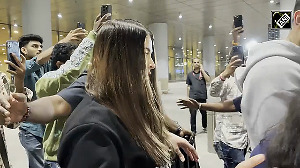You were teaching in New Delhi and could have settled there. What drove you to Madhya Pradesh in the late 70s to practise among tribals? Were the health facilities there as bad as they are at present?
They were not as bad. But, they were similar. There has been no marked improvement as far as healthcare infrastructure or services to the poor are concerned. The Chhattisgarh government did an evaluation of the services by using the Caesarian section facilities in government hospitals as an index. Only three government hospitals were equipped to carry out this operation in 2004. Very few health centres are equipped to investigate and treat communicable diseases.
When we talk of the right to healthcare, the business of healthcare infrastructure is very important. Its expansion is necessary and it is happening under the National Rural Health Mission.But it is happening in a disjointed way. They are buying equipment, but there are no personnel. We are facing a big problem because of the government's decision to give privileges to the private sector in the name of public-private partnership. India already has the biggest private sector ownership of infrastructure and the largest chunk of health expenditure happens in the private sector today. So, healthcare has become very expensive.
Are we worse off now?
No, it has not become worse, quite a bit of expansion has happened. But, what is happening is not enough. There is no political dedication to make it work efficiently as the private sector is taking the larger share of healthcare infrastructure.
How did you get associated with the late Shankar Guha Niyogi? Was that the link between your health activism and civil rights activism?
We were part of the Chhattisgarh Mukti Morcha and were working among mine workers in 1981. Niyogi was an important leader of the movement and it was his idea to get workers' organisations involved in public services like education and healthcare. So, we built a hospital for the workers with workers' funds. It was called the Shaheed hospital and is still being run by my colleagues.
Accredited Social Health Activists are a version of the mitanins, or health workers you introduced in Chhattisgarh. Are you happy with the government version?
Even my colleagues in the NRHM are not satisfied. ASHA, or mitanin that we suggested in Chhattisgarh was not a government functionary but a community activist. ASHA, or a local girl trained to inform villagers on health services and generate demand is a good idea. But it needs popular participation if it is to work. You can't just transplant one idea without the context and expect it to work. Even a government-appointed ASHA is a good idea, provided elementary health facilities are available to back her efforts. Services should be of good quality. So far, it is not there. This will discredit the ASHA before the local community. It is a worrying thing.
In the 90s, you were working with the Chhattisgarh government, formulating its health programme. How did the ties snap?
It was not sudden. We were all along working with the People's Union for Civil Liberties and raising questions about Salwa Judum, encounter deaths, malnutrition. Because we were raising these issues, the adversarial relations became sharp, leading to the arrest.
You have seen Naxalism and have been branded a Naxal associate. The civilian anti-Naxal force, Salwa Judum, is seen as a failure. What is the best way to deal with the issue, especially since the Naxalites are not believed to be amenable to talks?
There have to be negotiations. The Indian government has been lecturing others how the military solution is not right. How can it do something it advocates against? Military solution is not possible or desirable. These people are citizens of India and hence political engagement and dialogue have to be promoted. We can't leave it to the government alone.
The two years that you were under detention saw some of the worst agitations by communities over land acquisition by the government and industry for industrial purposes. In most cases, the verdicts of the courts have gone against the people, whether it was Vedanta or Posco...
Land acquisition is a major problem in our area too. Widespread displacement is taking place, not only of land but also of water resources. In Lohandiguda, the Jindals have got into an agreement with the government to use the river for industrial purposes. A lot of common resources are being cordoned off for private enterprises. This will cause major problems. There is no way out but struggle.
You spent two years in Raipur jail, though the authorities are yet to find evidence to back the charges against you. Does your release now bring hope to undertrials?
There are 178 people in Raipur jail with no clear case against them. These are people caught under the Chhattisgarh Public Security Act, which requires little evidence to arrest a person on suspicion of being a Naxalite. I am on bail on a personal bond. There is little hope for others. As for me, my case will continue.
The Chhattisgarh Chief Minister has said that your bail will be reviewed by the trial court and the state government has been against letting you leave Raipur even for medical treatment. Do you have any hope of this case coming to an end?
They have no evidence against me and I am hopeful of a positive outcome.
Since you are in Kolkata now, have you met your mother, who had appealed to the government for your release?
No, I am yet to meet my mother, as she is outside Kolkata.







 © 2025 Rediff.com -
© 2025 Rediff.com -